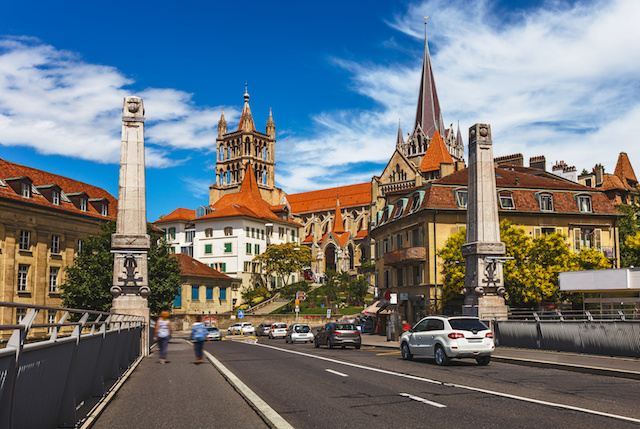Living Costs for Expats Moving to Switzerland

Rolex watches, the Swiss Army knife, fondue and chocolate – are all things that Switzerland is famous for. Another thing that Switzerland is famous for is its high quality of life and associated cost of living. When looking at the 2017 Mercer Cost of Living Survey’s top 10, three Swiss cities made the list: Bern, Zurich and Geneva. Fortunately, one of the benefits of moving to Switzerland is that salaries and standards of living are amongst the highest in the world. Let’s take a look at the cost of living to help you plan your expat life in Switzerland.
Cost of accommodation in Switzerland
When moving to Switzerland, it is important to remember that most Swiss tend to rent property rather than buy it. As a result, there is a shortage of apartments. Especially in popular destinations such as Geneva and Zurich, the housing market is limited and the demand is higher than supply. When considering expat life in Switzerland, you should expect around 20 percent of your salary to go towards your accommodation. You will also need to pay a deposit and advance rent, which may be on the higher side.
Cost of transport in Switzerland
Even though Switzerland has an efficient and extensive public transport system, it is not cheap to use. Fortunately, multi-ride passes are available for regular commuters. For example, you should expect to pay around 185 Swiss Francs (equalling around 140 Pound sterling) for a Half Fare pass. This means that you get a 50 percent discount on public transport throughout Switzerland. Because of the supplementary fees, owning a car in Switzerland is very expensive. Those who can go without a car tend to do so. In addition to your lease or purchase costs, you also must consider petrol, a motorway vignette sticker, parking permit, canton tax, and insurance costs.
Cost of education in Switzerland
Those considering living in Switzerland with young children will be happy to know that public schools in Switzerland are not only high standard, but also free. However, the respective canton’s (of which there are 26) official language will also be the teaching language. Even though bilingual schools are expensive, they do exist.
If you prefer to send your children to an international school, prices can rise to upwards of 35,000 Swiss Francs (approximately £26,550 Pound sterling) per year based on curriculum and school facilities.
Health insurance in Switzerland
One factor that many expats overlook is the cost of Swiss health insurance. Medical coverage in Switzerland is not only expensive, but also compulsory. Even though there are specific situations where the government does grant subsidies, these subsidies are not necessarily easy to get.
Rather than relying on salary to determine insurance premiums, the Swiss base the cost on geographic area. This means that the CEO of an international company and a regular employee may end up paying around the same for a similar insurance package. Depending on the premiums, you should expect to pay around 300 CHF (£227) to more than 500 CHF (£379) a month.
Before making your move to Switzerland it is important to understand the cost of living implications. If you’re making a career move you can then factor these into your salary and package negotiations, to make sure you are getting a good deal. Or if you are moving with a private income, you can factor these into your cost of living planning.
If you are considering a move to Switzerland, Cadogan Tate will assist you every step of the way – from your first enquiry to unpacking at your new home, we are here to help and advise you. For more details about Cadogan Tate’s specialist international removals services from London, click here.



